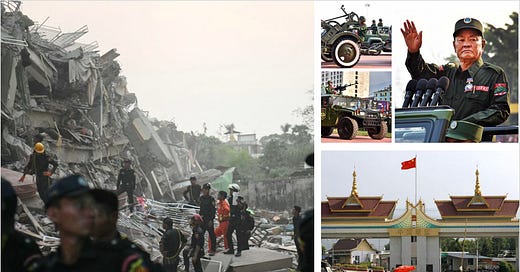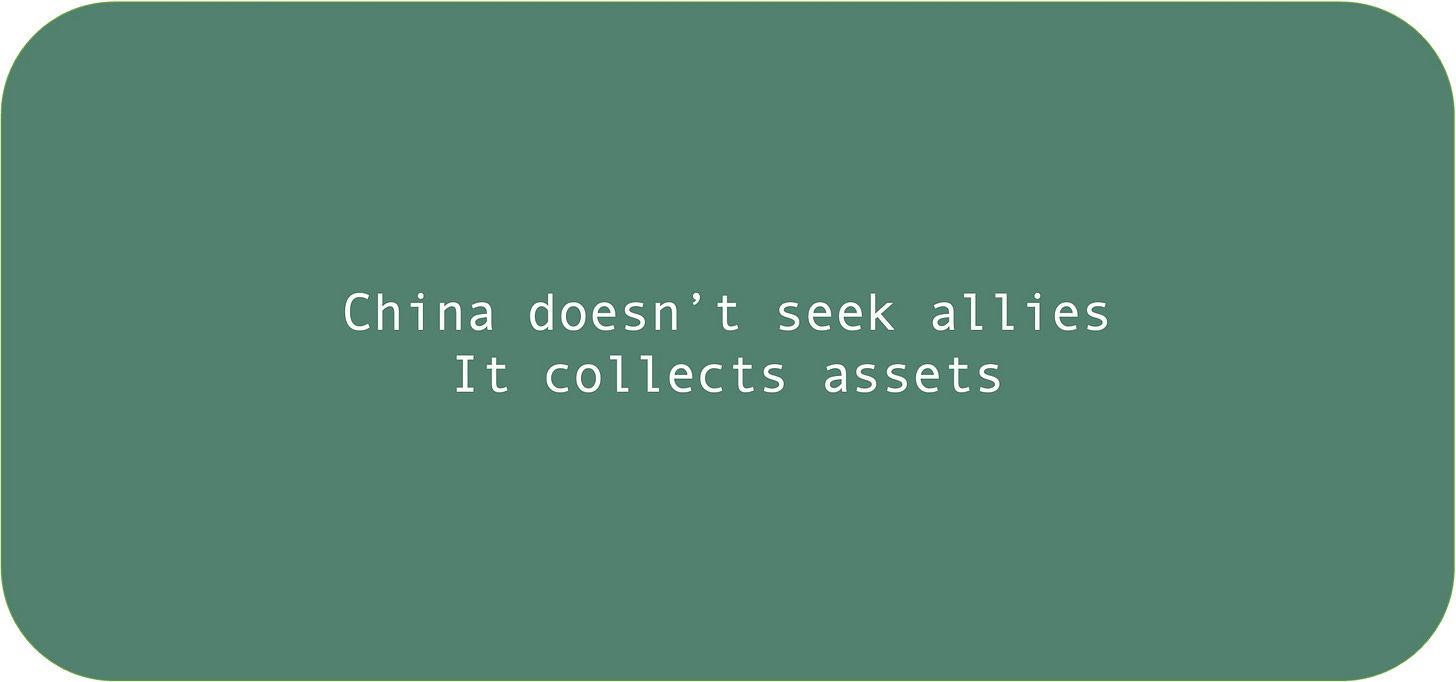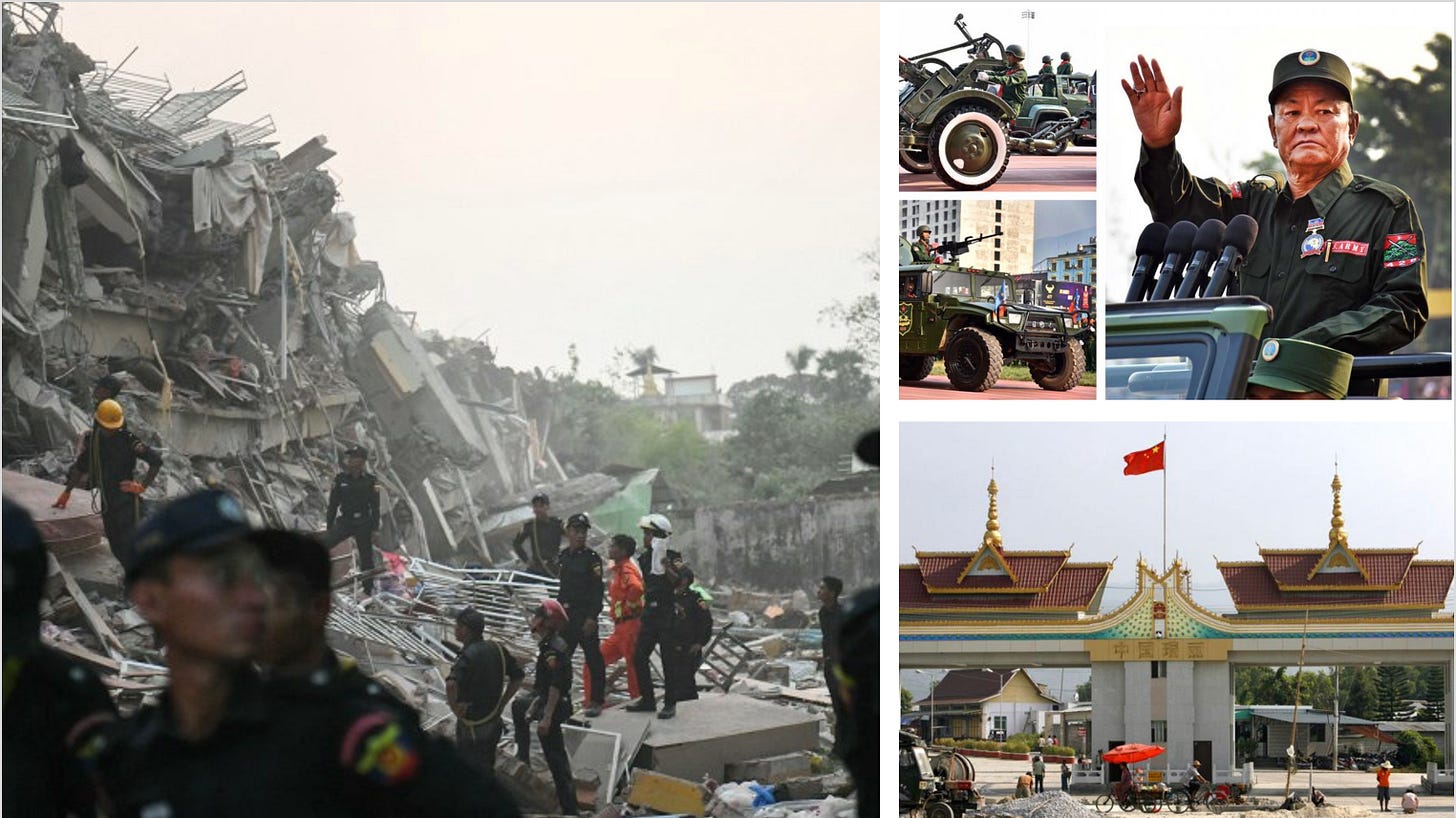Last week, The Economist described Myanmar as “Asia’s forgotten hellscape.” That phrase cuts deep, and it should. After all, not so long ago, Myanmar stood as the most symbolic battlefield in the global struggle between democracies, led by the United States, and autocracies, led by China.
But Myanmar’s fractious indigenous peoples were waging a different kind of war — one more Darwinian than democratic. The hellscape The Economist described is the result of a raging civil war that has displaced over 2 million people and turned the country into a lawless wasteland.
But the US and its allies saw the writing on the wall: Myanmar was becoming another Vietnam — or worse, another Afghanistan. The whole world watched as the Biden administration mounted a chaotic, humiliating retreat from Afghanistan, eerily reminiscent of the fall of Saigon. But relatively few noticed as that same administration quietly began retreating from Myanmar; and it was just as humiliating, only more discreet.
More to the point, after the US and its allies retreated, China slipped into the vacuum they left behind. Beijing began supplying arms to all sides, locking in economic leverage, and weaving influence through infrastructure and mining deals. This is textbook Chinese hegemony — cloaked in pragmatism, driven by profit. But it’s all calculated to cement Chinese regional dominance.
Indeed, this kind of intervention isn’t unique to Myanmar. China is running the same imperial playbook across the developing world. Frankly, its divide-and-conquer strategy makes old empires (from the ancient Greeks to the 19th-century British) look salutary and genteel by comparison.
To be fair, China makes no pretense: it’s only interested in transactional business — human rights, even raging civil war, be damned. That’s why I’ve argued, in too many commentaries to count, that any country embracing China as a more benevolent superpower than America should beware. Even with a transactional grifter now leading the United States, Beijing remains the greater threat. Because when China moves in, national sovereignty checks out.
That said, I'd be remiss not to mention the fall from grace of Aung San Suu Kyi. The arc of her transformation — from democracy icon to authoritarian enabler to political relic — speaks volumes. But it might suffice to merely list the titles of just five of the commentaries I referenced a moment ago:
“Buddhists Religiously Cleansing Muslims in Myanmar” on May 13, 2015
“Nobel Laureate Suu Kyi Courting Totalitarian Power at the Expense of Democratic Principles” on September 15, 2015
“Even Fellow Nobel Laureates Now Condemning Myanmar’s Suu Kyi, the Godmother of Ethnic Cleansing” on September 14, 2017
“Democracy Shrew Aung San Suu Kyi Went to Bed with Military Dogs…” on February 3, 2021
“Aung San Suu Kyi, Sentenced to Another Installment of Her Life in Prison” on December 16, 2021
That’s why I’m not surprised that she sits withering away in prison today, her moral authority long since spent, while her country is engulfed in chaos. The economy has collapsed, resistance is fractured, and the fight for democracy is all but lost.
Incidentally, the desperation has reached such depths that when a devastating earthquake struck in March, some saw it as a twisted blessing. Perhaps international aid would finally reach a population so brutalized that natural disaster seemed preferable to their daily reality. Yet even then, the heartless junta prioritized totalitarian control over saving lives. They restricted humanitarian aid deliveries while resuming airstrikes despite their own declared cease-fire.
Worse still, the US and its democratic allies haven’t just abandoned Myanmar. They left China to have its way there, just as they left the Taliban to have its way in Afghanistan. So is it any wonder that China is now helping Russia do in Ukraine what it hopes to do in Taiwan? After all, despite all the talk, the US and its allies seem poised to let Russia have its way in Ukraine, too.
Myanmar isn't just a tragedy. It's a cautionary tale and a preview of what awaits any vulnerable nation foolish enough to embrace Beijing as a benign superpower. It's another domino to fall, one that will only embolden China and its axis of autocracies.
The forgotten hellscape that is Myanmar today could be any nation tomorrow. The question isn't whether China will continue this pattern; it's whether the democratic world will finally wake up to stop it. And I always find it helpful to pose this counterfactual: If Europe depended on China instead of America to help it fend off German aggression during World War II, all Europeans would be speaking German today.





